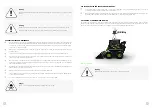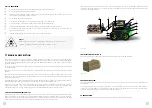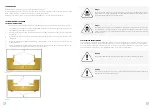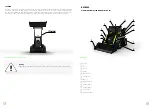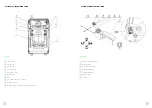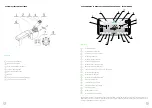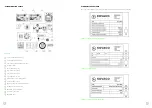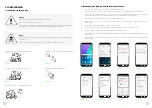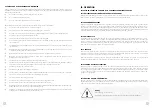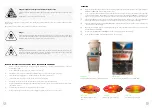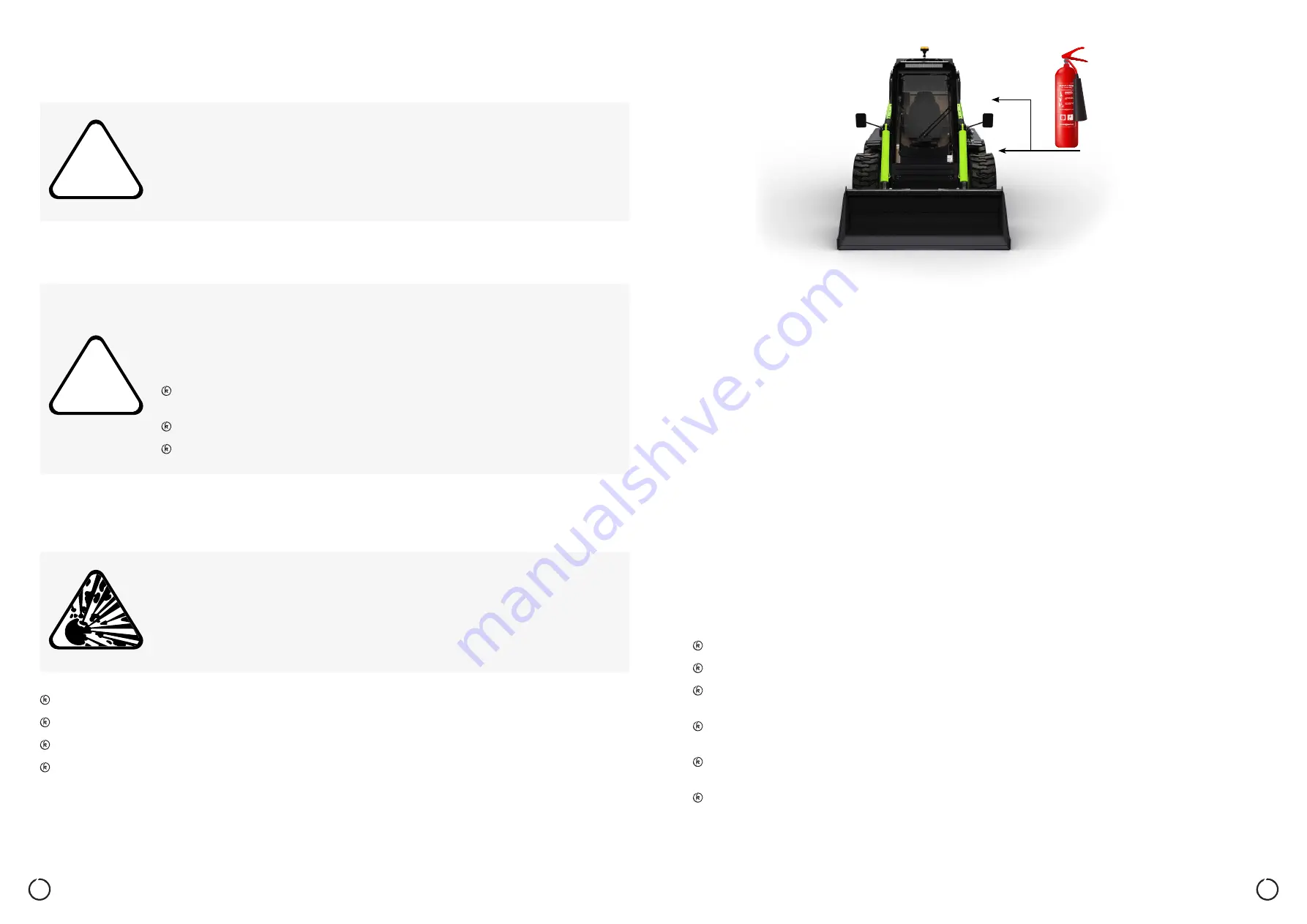
33
32
!
!
In case of injury, seek medical attention immediately.
Rinse spilled battery acid immediately with plenty of water.
6.6 EMISSIONS
6.6.1 BATTERY
Always ensure that completely or partially enclosed workplaces are well ventilated.
Keep a safe distance from open flames and flying sparks.
Do not smoke near the machine and the battery.
Observe the safety regulations when handling the battery.
6.7 FIRE SAFETY
The loader has several components that heat up significantly under normal operating conditions - such as the electric mo-
tor. If the electrical system is damaged or poorly maintained, it can produce electricity arcs or sparks.
6.5.5 DISPOSAL OF CONSUMABLES
Explosion Danger
When charging, the battery releases a mixture of oxygen and hydrogen (oxygen-hydrogen mix-
ture). This gas mixture is volatile and must not ignite!
Warning
Dispose of used battery acid in accordance with applicable regulations.
Warning
Materials that accumulate during repairs, maintenance and cleaning must be properly collected
and disposed of in accordance with national regulations of the country in which the loader is
used. Such works may only be carried out in designated areas. Any negative impacts on the en-
vironment must be minimized to the extent possible.
All spilled fluids, such as hydraulic or transmission oil, must be immediately
contained using an absorbent that binds oils.
Neutralize spilled battery acid immediately.
Always follow the national regulations governing the disposal of used oil.
The manufacturer recommends equipping the loader with a suitable fire extinguisher to be at hand during operation
in accordance with the relevant national regulations. Its possible storage location is shown in Picture 3.
Flammable waste (such as dry leaves, straw) must be disposed of regularly. If such waste accumulates, it will increase
the risk of fire. The loader must be cleaned as needed to prevent such buildup.
Do not use the loader where electric arcs, sparks or hot parts may come into contact with flammable substances or explo-
sive atmospheres.
Inspect all electrical wires and connections for damage. Keep the battery terminals clean and screwed tight. Repair or re-
place any damaged component.
Inspect fuel and hydraulic pipes, hoses and terminals for damage or leaks. Never use open flame or exposed skin to check
for fluid leaks. Tighten or replace any leaking components. Always clean liquid stains. For cleaning the components, do not
use petrol or diesel. Use commercial non-flammable solvents.
Do not use the loader in an explosive atmosphere.
Do not connect the battery improperly. It needs to be connected by a professional.
Keep batteries clean, and lubricate pole terminals with grease.
When welding, disconnect the batteries, provide ventilation and have a fire extinguisher at the ready near the loader.
6.8 SAFETY RULES WHEN WORKING
Before commencing work, the driver/vehicle operator is obliged to perform daily maintenance.
Crushing and loading other types of rocks than specified in the operating instructions is prohibited!
It is allowed to work with the machine on slopes with a transverse and longitudinal inclination of up to 10 degrees
without restrictions.
If necessary to work at night or in otherwise reduced visibility, the workplace must be lit by local light sources.
The work lights of the loader alone are not sufficient for working at reduced visibility.
When working while on public roads, the loader must not endanger the safety of other road users, the workplace must be
marked with warning signs and the machine must have the warning beacon on.
Due to the possibility of overloading the loader, it is necessary to adjust the driving speed and working movements
with loaded bucket to the effective load. Overloading the machine will characteristically manifest when lifting the work
device by relieving the rear wheels.
Picture 3: Possible place for storing a fire extinguisher
















